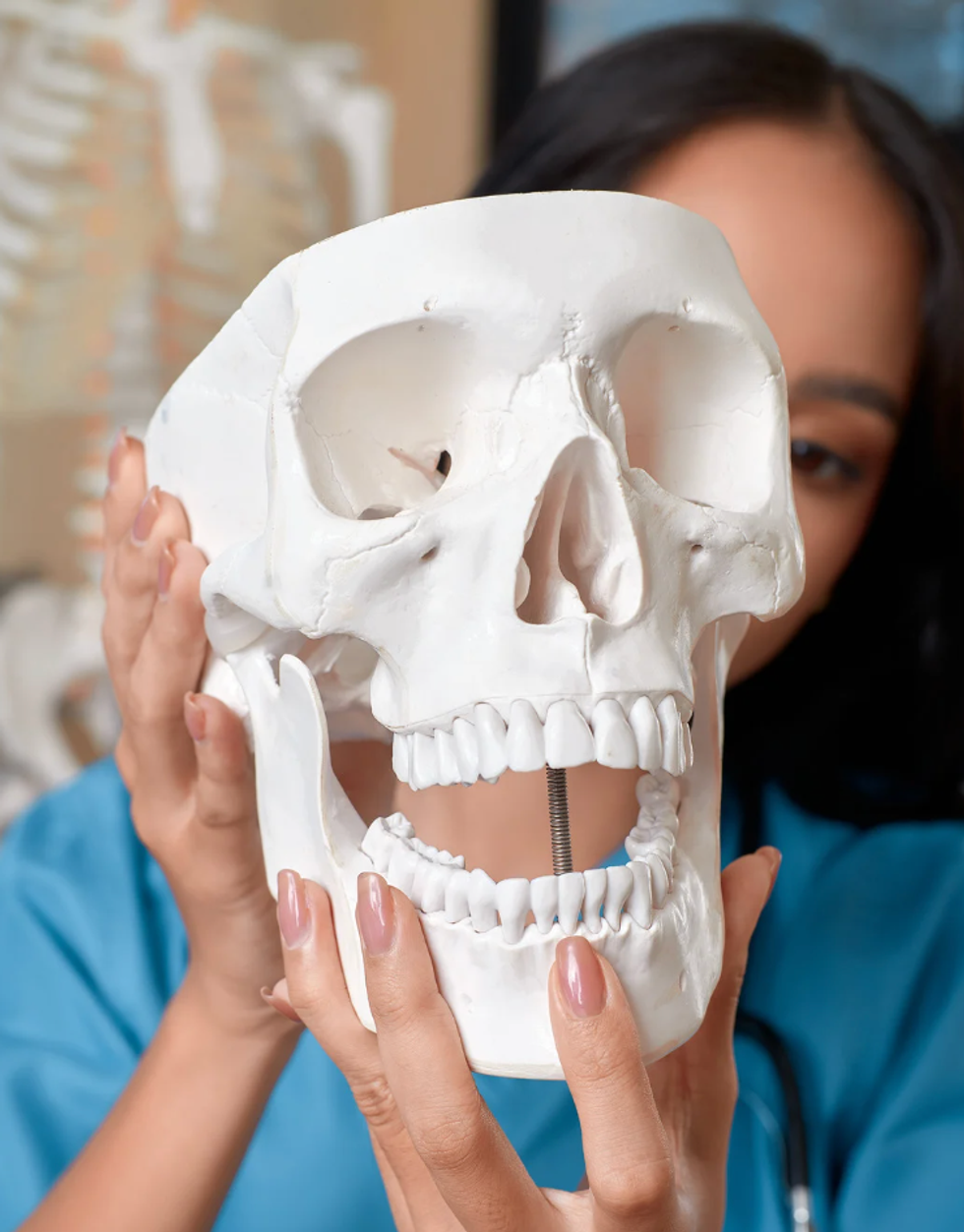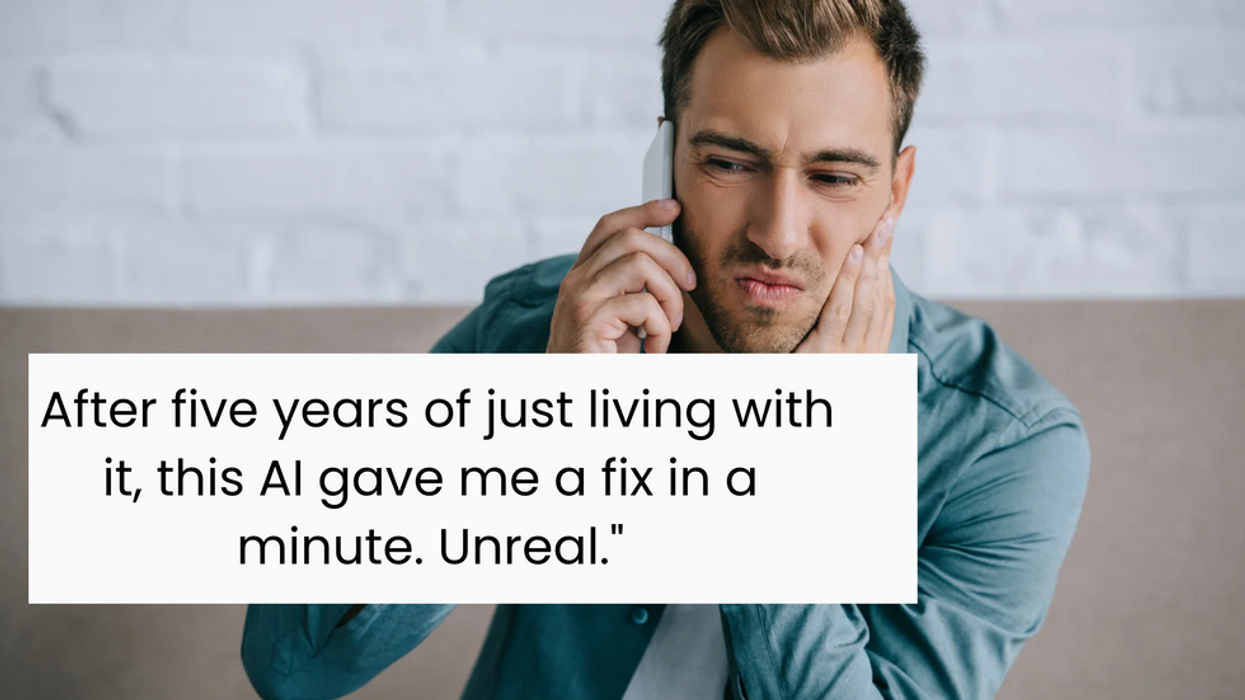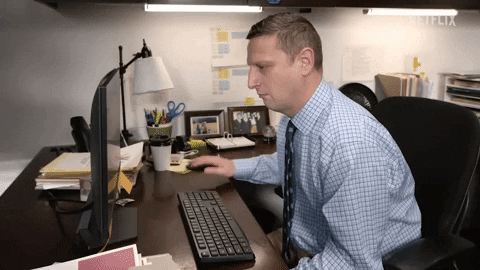For five years, u/User2000ss lived with a constant click in his jaw. He thought it was the result of a boxing injury—annoying, sometimes painful, and impossible to fix. He’d seen doctors, had MRIs, tried self-massage. Nothing made a difference.
Then, on a whim, he asked ChatGPT.
What happened next has gone viral for good reason.

ChatGPT suggested a cause: a displaced but still mobile disc in the jaw joint, common in TMJ (temporomandibular joint) disorders. It recommended a simple exercise—a controlled jaw movement technique involving tongue placement and careful motion. Inspired by physical therapy, the approach is meant to retrain how the jaw opens.
"I followed the instructions for maybe a minute max and suddenly… no click. I opened and closed my jaw over and over again and it tracked perfectly. Still no clicking today. After five years of just living with it, this AI gave me a fix in a minute. Unreal." — u/User2000ss
He shared his experience on Reddit, and the reactions came fast. People couldn’t believe it. But what’s more surprising? For many of them, it worked too.
"Hahaha... wtf... You just fixed mine too. When I was a teenager some kid was a bit overeager in MMA class and it's cracked and clicked ever since. It just stopped because of this..." — u/Calm_Opportunist
"Same! I’ve had this click in my jaw since I was 20. 17 years later and there’s a super simple fix. What the hell?" — u/PigleythePig

One user, u/wardendelete, added: “Wait wait wait, I have mine for over 8 years and it just gone away wtf.”
The method itself isn’t complicated. Here’s the breakdown, according to u/User2000ss:
- Sit up straight with relaxed shoulders.
- Place the tip of your tongue on the roof of your mouth, just behind your front teeth.
- Lightly press a finger on the side of your jaw that clicks.
- Slowly open your mouth until just before the click. Hold for a second.
- Close. Repeat ten times, a few times a day.

It sounds too easy, but the technique likely targets deep jaw muscles that influence disc movement. A Reddit user who identified as a dentist explained it like this:
“What you all are doing is manipulating your medial pterygoid muscle. Think of it like a kneecap that is very unstable and you are using your hand to hold it in place while you extend your leg.” — u/jwilson02
Other commenters pointed readers toward ENT clinic guides and NHS exercises that describe similar routines. In other words, the technique isn’t new—but access to it was.

As u/Metakit pointed out, the power of AI here wasn’t that it “invented” a cure, but that it surfaced relevant information fast:
“It’s unfortunately quite common for people with chronic and low severity ailments like OP to be simply moved around a system for a long time… An LLM can be useful in this respect… but it’s a far cry from genuinely innovating medical interventions.”
The story highlights a real gap: a lot of people with low-grade but disruptive conditions never get the right help because their cases aren’t urgent. An AI that quickly connects symptoms to accessible therapies may not be groundbreaking medicine—but it can be life-changing for someone who’s spent years waiting.

Of course, not everyone saw results. A few users reported only temporary relief, or no change at all. TMJ disorders are complicated, and what works for one person may not work for another. Anyone with persistent symptoms should still talk to a healthcare provider.
Still, this small success is offering new hope to people who’d given up on ever finding relief. And it’s raising bigger questions about how accessible health information could—and should—be delivered.
This article originally appeared earlier this year.


















 A flight attendant closes the overhead binCanva
A flight attendant closes the overhead binCanva Gif of Larry David trying to put his luggage in overhead compartment via
Gif of Larry David trying to put his luggage in overhead compartment via 
 Dog owner pets their dogCanva
Dog owner pets their dogCanva Gif of a sad looking pug via
Gif of a sad looking pug via 
 A happy entrepreneur at workCanva
A happy entrepreneur at workCanva
 A car with LED headlightsCanva
A car with LED headlightsCanva
 A confident woman gives a speech in front of a large crowdCanva
A confident woman gives a speech in front of a large crowdCanva

 The original photo.Image from “
The original photo.Image from “ Photoshopped for Mexico Image from
Photoshopped for Mexico Image from  Photoshopped for ArgentinaImage from “
Photoshopped for ArgentinaImage from “ Photoshopped for USAImage from “
Photoshopped for USAImage from “ Photoshopped for SyriaImage from “
Photoshopped for SyriaImage from “ Photoshopped for SerbiaImage from “
Photoshopped for SerbiaImage from “ Photoshopped for UkraineImage from “
Photoshopped for UkraineImage from “ Photoshopped for Philippines Image from “
Photoshopped for Philippines Image from “ Photoshopped for RomaniaImage from “
Photoshopped for RomaniaImage from “ Photoshopped for South AfricaImage from “
Photoshopped for South AfricaImage from “ Photoshopped for NetherlandsImage from “
Photoshopped for NetherlandsImage from “ Photoshopped for EgyptImage from “
Photoshopped for EgyptImage from “ Photoshopped for UKImage from “
Photoshopped for UKImage from “ Photoshopped for ChinaImage from “
Photoshopped for ChinaImage from “ Photoshopped for VenezualaImage from “
Photoshopped for VenezualaImage from “ Photoshopped for SpainImage from “
Photoshopped for SpainImage from “ Photoshopped for ItalyImage from “
Photoshopped for ItalyImage from “ Photoshopped for PeruImage from “
Photoshopped for PeruImage from “ Photoshopped for ColombiaImage from “
Photoshopped for ColombiaImage from “
 Stressed out woman at workCanva
Stressed out woman at workCanva Gif of office worker trying to get computer to work faster via
Gif of office worker trying to get computer to work faster via  Female employee celebrates at workCanva
Female employee celebrates at workCanva